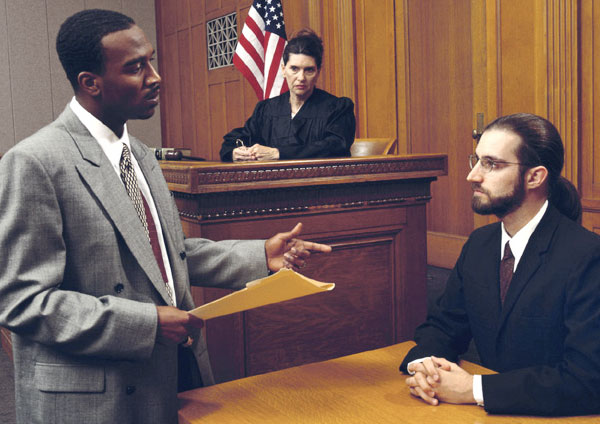Expert Witness Credibility: What Makes A Doctor Believable?
This judge is not having any of it.
In order for an expert witness's testimony to be helpful in a legal case, it has to fit well into the attorney's overall legal argument. The testimony must clarify or prove certain elements of the attorney's case, and it must be persuasive. It is not enough for an expert to coldly present facts and opinions--The trier-of-fact (either the jury or the judge) also needs to believe the expert witness.
There are plenty of examples of experts who present very good opinions in very bad ways. These experts spend hours pouring over the data, reading relevant research, and forming their opinions. Then, they get on the witness stand and panic. They are tense, they stumble over their words, they look frozen in place. No matter how smart they are, the jury has a hard time believing them.
Stan Brodsky, a psychologist and nationally renowned leader on the topic of expert witness testimony, has written on the topic of expert witness credibility. He and his research partners wanted to know what factors play into whether or not an expert witness is believable on the stand.
In his research, he developed a measure called the Witness Credibility Scale (Brodsky, Griffin, & Cramer 2010), where he identified four factors that underlie the concept of believability: Likability, Trustworthiness, Confidence, and Knowledge.
This judge is really not having any of it.
Except for the factor of Confidence, it appears that the higher an expert's score on the trait, the more believable he/she is in the eyes of the jury. With Confidence, moderate scores are ideal. Apparently, an expert who is overly confident is seen as less believable (and possibly more rigid in his/her thinking) than an expert who displays a moderate level of confidence.
Dr. Brodsky's research is important because we have known for a long time that a credible expert witness is going to have more of an impact on a jury than a non-credible witness. But, we have had difficulty defining exactly what constitutes credibility or believability.
Of course, experts need to formulate well-thought, honest opinions. But, they also need to present them in the most believable way. If, for example, an expert is seen as highly knowledgeable but overly confident and unlikeable, that knowledge may have little effect on a jury. A trustworthy expert who is likeable but not confident may be seen as less than credible.
One of the limitations to Dr. Brodsky's study, which he admitted readily in his conclusions section, is that he is unsure if there are overarching personality styles that may be influencing the four factors his research team identified through the Witness Credibility Scale. One hypothesis I have is that expert witness preparation may have a strong effect on the witness's Confidence and Knowledge ratings. Although it is not a personality attribute, there are strong indications from the research that witness preparation is one of the most important factors when it comes to effective testimony. I am inclined to believe that witnesses who prepare thoroughly are going to come across on the stand as more confident and more knowledgeable in their opinions. The proper amount of witness preparation may even increase the expert's trustworthiness.
The most highly prepared, trustworthy, and knowledgeable expert can still be a jerk, though. So, likability is probably not associated with case preparation.

